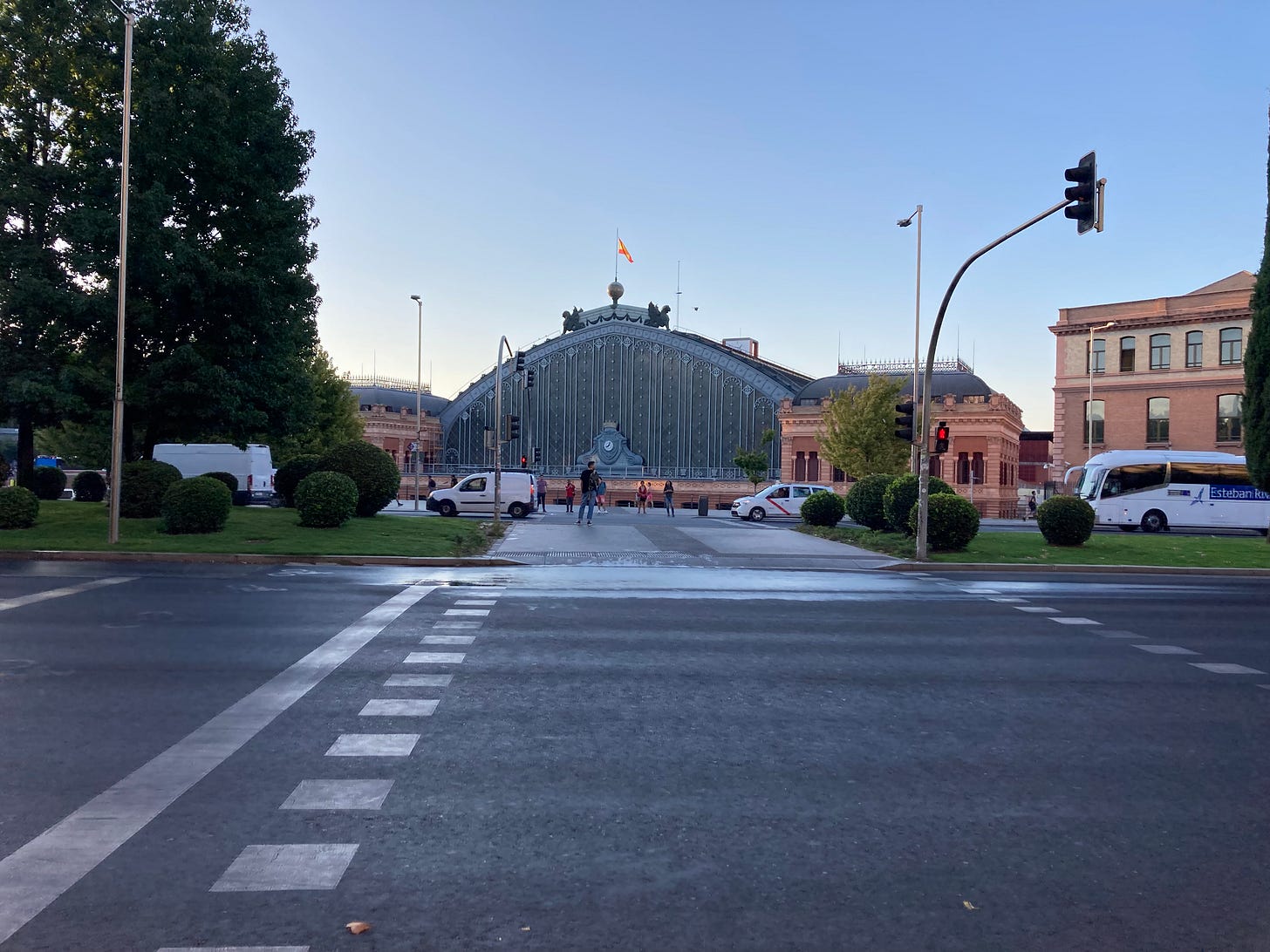Greetings from Cadiz, Spain! Last week I was getting ready for this trip — I will post twice this week to make up for it… Thank you to the newly upgraded subscribers — your support means the world to me! If you’ve been enjoying this newsletter and meaning to upgrade to paid, please do it today!
If you read the New York Times, apparently all of the U.S. is in Europe this summer. The NYT has dedicated not one, not two, not three, but four and five articles to the subject of “innocents abroad.” After years of staycations due to COVID restrictions, the revenge travel trend may have hit its peak this summer with Americans paying above-average fares to fly to and vacation in Europe.
Already we’re seeing evidence of what Americans are taking away from the experience —- a fascination with European quality of life, food, and built environment. On my way to Spain, I was reading Monocle’s Cities Issue, which lists the most livable cities, most of which are in Europe and none of which are in the U.S. After some historically bad years for the U.S., many Americans are eying Europe not just for vacations but for a vision of an alternate universe where housing is less expensive, work is less demanding, and daycare is easier to access.
But sometimes this vision of Europe clashes with reality. Like when I was on a train heading to Cadiz and I saw a Spanish young woman slurping down a McDonald’s frozen yogurt while two other young Spanish women behind me were playing videos loudly. I felt like I was back on the LIRR, not in some utopia.
In my pit stop in Madrid, I marveled at Spain’s efficient train infrastructure - a 3-Euro ticket and single-seat ride from Madrid’s airport to downtown. But when I got to Atocha station, I was waiting for my train to Cadiz in a room with the same low ceilings of Penn Station and the same lack of seating that befalls Moynihan Station.
The roads around Atocha station were whirring with cars and lacking in the kind of pedestrianization we tend to think exists in Europe, the streets nearby were also covered in litter (though I did see a sanitation worker starting to clean up), and every public bathroom I used on my journey to Cadiz was comically unclean.

At first I was cheering the Spanish train system’s tickets with assigned seating, until I was stuck between family members in one of those awkward foursome groupings and unable to relocate for my three-hour ride.
I don’t want to ruin the idealism of Europe by proving some aspects of its society are at same decrepit level as the U.S., or missing the American “freedom” that comes with our haphazard infrastructure — but I do want to acknowledge that Europe is fallible, with imperfect people and an imperfect culture as well.
What could be a lesson from the summer? Perhaps we can see that Europe is not exceptional — a flip on the idea of American exceptionalism that has so long been part of our country’s autobiography, until perhaps 2001. Much as America no longer dominates global corporate and cultural exports, like music and movies, we need to recognize that Europe doesn’t have a lock on creating cities or societies that improve residents’ quality of life.
I’m all in favor of trying to implement stronger social safety nets and walkable urbanism, but I also think that we have plenty of examples in the U.S. to draw from and help popularize throughout the country. Like the free bilingual Pre-K-12 in Washington, D.C. or the 12 weeks of paid family leave for Washington state workers. We lack the abundance of walkable, nearly car-free cities that abound in Europe (more on that from Cadiz soon!), but we are making some strides to introduce congestion pricing, and have innovative uses of former rail systems from the Beltline in Atlanta to Chicago’s Bloomingdale Trail. These few examples don’t compare to the mountains of evidence of superior European public goods — like that public housing in Vienna, I know! But I also doubt you’ll be able to sell an American city on improving its housing stock by pointing abroad, rather than to a handful of nicely design Chicago public housing projects with libraries built in.
It’s great to look abroad for inspiration, so long as we don’t forget that we can improve American cities by looking deeply within them as well.
What do you think? Were you one of the millions of Americans abroad this summer? What impressions did you have?







Congestion pricing! Just like the ultra low emission zone in London. I was amazed when I saw it for the first time this summer and felt sad we weren't doing something similar so I'm fully thrilled to hear it's in the works here in the states as well. I did not know about the months of paid leave either. That really boosted my mood to read! I wish there was one place a person could go to learn about the civic successes happening around the US- it's hard not to feel a bit bleak at times.
I am one of the Americans that went to Europe for the first time this summer and I compared everything I saw- the trains, the streets, what sense I could get of if people struggled or not, the prices of the housing in ads I passed on the street. My general impression is that things seem to run better but it's not perfect and the public goods cost a lot. I was shellshocked by how expensive the tube was compared my daily SEPTA ride- it cost easily as much as a Lyft or Uber. But on the flip side, I think that's why the public goods are so good. I'm just a layperson but it seemed to me that in the US we pay out of pocket for things to be nice, a la carte. Like I'd say their public buildings reminded me of the kind of private college I went to, and the train anyone can take is super nice and safe and clean, the way a private uber ride is reliably nice and clean. It's interesting to think about if it's better to share the burden of better public goods but have less personal money- I think so.
That's my little rant! I'm so glad I saw this, I was feeling ***A LOT*** after I came home from Europe so it's nice to actually talk about it with others
Diana, Thank you for this post! An excellent reminder to keep our rose-colored glasses handy, but to know when to take them off. Also, some keen observations, and photos to drive the points home. As always, appreciate you taking the time to share your thinking with the rest of us. -Nick